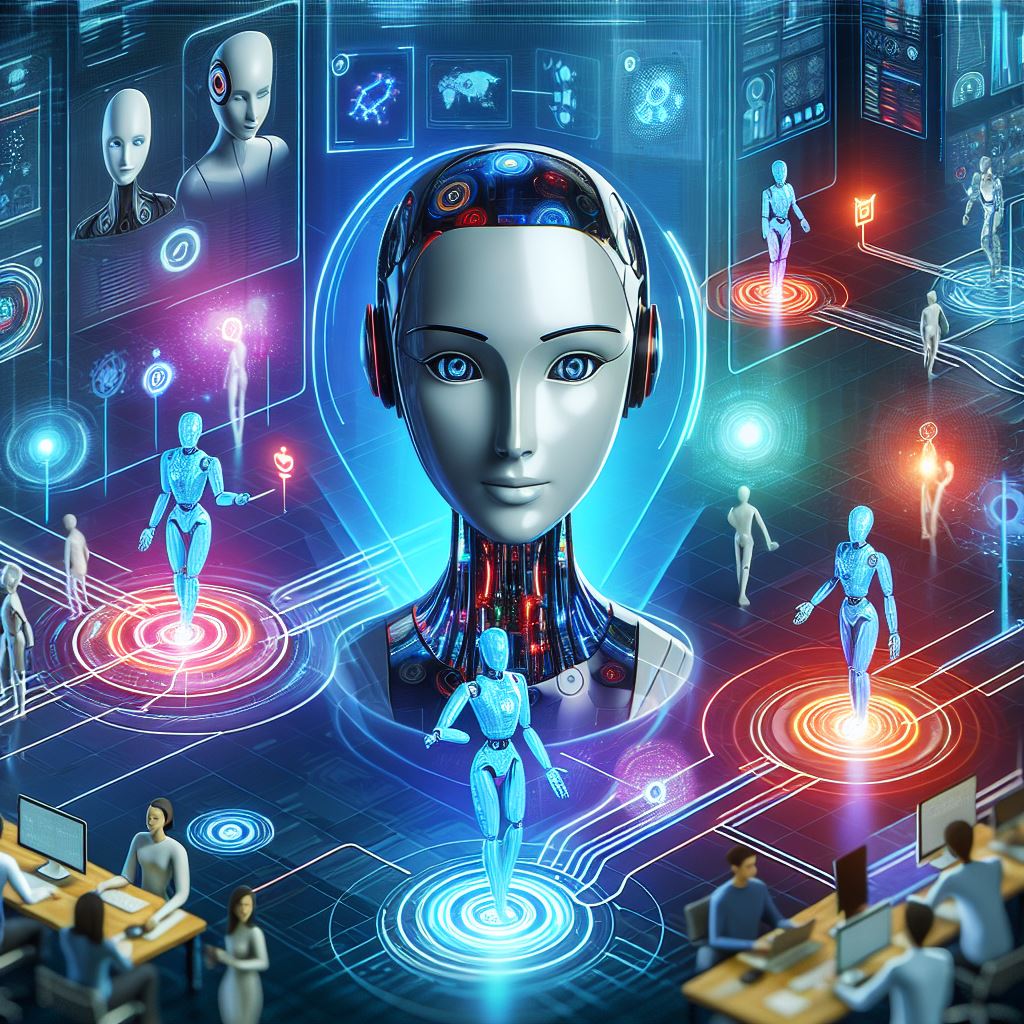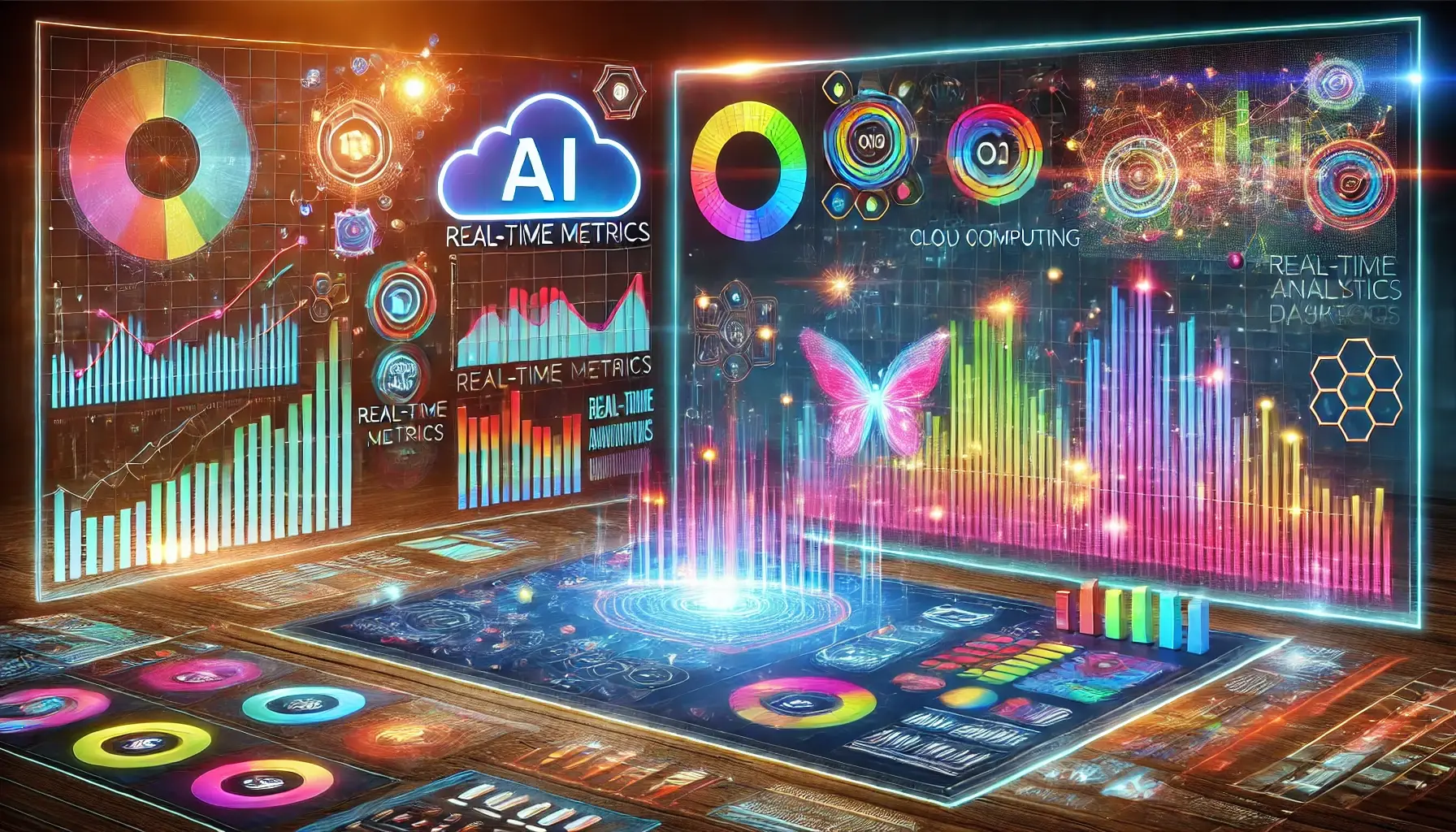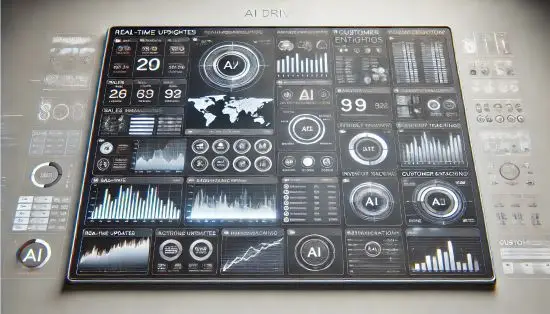
Automation, AI Workflows, and AI Agents – Same Stage, Different Actors!
Ah, buzzwords—you see them in every glossy tech presentation and hear them dropped with panache at corporate meetings. Words like “automation,” “AI workflows,” and “AI agents” tumble effortlessly out of mouths as if they’re interchangeable puzzle pieces. Business leaders nod along as if these are mere flavours of the same ice cream. Spoiler alert: they’re not.
Imagine automating your business and accidentally overengineering it with an advanced AI agent that costs a fortune when all you needed was a simple automation script. It’d be like deploying a symphony orchestra to play the “Happy Birthday” tune. Expensive, overkill, and hilarious in hindsight. So, let’s peel back the marketing lingo and clarify what these tools do, where they shine, and, importantly, where they stumble.
With this post, you’ll know your buzzwords from your buzzkill and have a more precise roadmap for incorporating efficiency and smarts into your business toolbox.
Automation
Let’s kick things off with automation, the reliable workhorse in the tech stable. Automation isn’t flashy. It doesn’t impress you with deep learning algorithms or sophisticated predictive models. Instead, it says, “Allow me to take care of this, boss,” and quietly tackles your repetitive and mundane tasks without breaking a sweat—or making errors.
Think of it this way: Automation is your intern that never sleeps. It takes a well-defined set of instructions and executes them like clockwork.
Strengths:
– It. Just. Works. (Provided the task is well-defined and repetitive.)
– Scales faster than you can say “batch processing.”
– Likely to cost less than your office coffee budget.
Weaknesses:
– Creativity? Zero. Flexibility? Nada. Unexpected scenarios? Automation can only shrug metaphorically and stop working.
– If the rulebook changes, you will have to rewrite it.
Ideal Scenarios:
– Are you tired of spending 30 minutes daily migrating data from one spreadsheet to another? Automate.
– Want to ensure your customers reliably receive email confirmations when they order something? Automate.
Real-Life Example:
Let’s use a logistics company as an example. When you place an online order, how do you receive that delightful tracking number in your inbox? An automated script activates, retrieves the transaction details, creates the tracking number, and sends you the email. No assistance is needed, and no excuses about “forgetting” are acceptable.
AI Workflows – The Conductor with a Brain
If automation feels like chess pieces playing out predictable moves based on if-then logic, AI workflows are the coach strategizing the entire chess game. While automation sticks to rules, AI workflows think a few steps ahead, processing vast datasets to not only act but also forecast and decide with finesse. They’re orchestral conductors, except their music is predictive analysis, and their orchestra is data.
Think of it this way: AI workflows aren’t just solving today’s problems but anticipating tomorrow’s opportunities.
Strengths:
– They uncover gems in your data, finding patterns where human eyes might only see noise.
– Unlike automation, they’re adaptable, constantly learning from new data inputs to refine their output.
– They thrive in environments where complexity reigns supreme.
Weaknesses:
– Before flying, they need to be taught how to walk! You need education!
– They’re only as good as the data fed into their hungry algorithms, and insufficient data can lead them astray.
– Maintenance can feel like babysitting a particularly high-maintenance genius.
Ideal Scenarios:
– Got a business with thousands of customers and need to serve them hyper-personalized recommendations? AI workflows are your friend.
– Want to detect fraudulent transactions faster than fraudsters can blink? Ring up your AI workflow.
Real-Life Example:
Have you ever found yourself browsing for a winter jacket online, only to be bombarded by eerily accurate recommendations—boat shoes, wool socks, and a scarf to match? That’s an AI workflow pulling the strings. It analyzes what you’ve clicked on and what others with similar tastes have purchased voilà! It delivers suggestions designed to make you hit “Checkout Now.”
AI Agents – The Mavericks of Digital Thinking
If automation is the tireless worker and AI workflows are the strategists, AI agents are the charming negotiators who not only adapt but also talk their way into—and sometimes out of—tricky scenarios. They’re like a concierge: polite, clever, and able to dynamically handle a medley of requests. Imagine having a virtual assistant that doesn’t just schedule your appointments but also argues with other assistants to prioritize when and where.
Think of it this way: AI agents are independent actors, not just executors of commands. They interact dynamically with humans and systems to get things done.
Strengths:
– They adapt on the fly, responding to nuanced and unpredictable scenarios.
– Interactions with humans are smooth as butter, thanks to tools like Natural Language Processing (NLP).
– They’re essentially decision-makers—digital brains, if you will.
Weaknesses:
– Unlike their rule-following cousin (automation), they can occasionally encounter unexpected outcomes, particularly if thrown into uncharted waters.
– Building an AI agent? Think expensive. Think resource-intensive.
– Ethical landmines exist in specific applications (like healthcare or sensitive personal data).
Ideal Scenarios:
– Do you need a personal assistant to schedule meetings, navigate multiple calendars, and determine perfect timings? AI agents own this space.
– Want a customer service agent who doesn’t pass angry customers to a human team member? Hire an AI agent sans emotions or fatigue!
Real-Life Example:
Take a scheduling assistant like Amy from the now-famous platform x.ai. This agent juggles countless email threads, resolves conflicts, negotiates meeting times and files everything neatly in calendars. No human back-and-forth is necessary—just results.
Comparison Table
Automation vs. AI Workflows vs. AI Agents
| Technology | Best Metaphor | Strengths | Weaknesses |
|---|---|---|---|
| Automation | The tireless intern. | – Efficient for repetitive tasks. | – Rigid, inflexible to changes. |
| AI Workflow | The data-savvy strategist. | – Excellent at finding patterns in data. | – Complex setup requirements. |
| AI Agents | The intuitive concierge or negotiator. | – Handles dynamic, unpredictable scenarios. | – Expensive, with unpredictable edge cases. |
Conclusion: Different Tools, Different Rules
In the tech ecosystem, automation, AI workflows, and AI agents are siblings with different talents. Automation is your go-to for repetitive efficiency, AI workflows navigate complexity, and AI agents play the socialites who adapt and respond dynamically. The key? Know your business needs before deploying one—and avoid summoning a Ferrari when a trusty bicycle will do just fine.
By aligning the right tool with the exemplary scenario, you’re not just working smarter; you’re working beautifully.


